The Winslow Boy, Birmingham REP - review and pictures
At the end of Queen Victoria’s reign about thirty percent of the population were practising Christians.
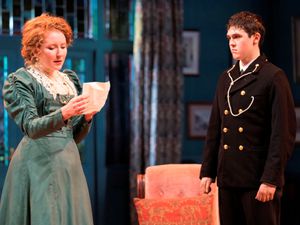
There was a rigid class structure and a very strict code of moral ethics. Perhaps the most highly valued of these was to always tell the truth, which is the central plank of Terrence Rattigan’s 1946 drama The Winslow Boy.
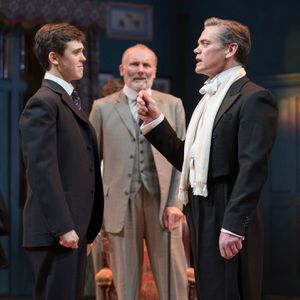
The history of politics is littered with the names of those who have failed in this respect. David Lloyd George sold knighthoods and peerages while John Profumo was involved with prostitutes and spies. Walsall MP John Stonehouse faked his own suicide, Jeffrey Archer and Jonathan Aitkin went to prison for their misdemeanours and Peter Mandelson and Geoffrey Robinson had to resign because of their shady financial dealings. In most cases it wasn’t the deed that caused the problem but telling lies about it most certainly was.
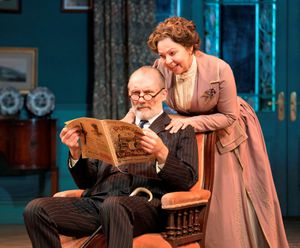
The play has 13-year-old cadet Ronnie Winslow expelled from Osborne Naval College for allegedly stealing a five shilling postal order and cashing it.
When questioned by his father he denies the charge and the family decide that they will do whatever is necessary to clear his name.
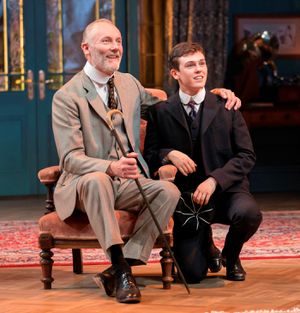
This requires the hiring of the best barrister in the country, Sir Robert Morton, QC, MP. The case takes nearly two years to be resolved. The Winslows lose most of the family money, the daughter is forced to break off her engagement, the eldest son has to give up his place at Oxford University while the father’s health deteriorates rapidly. But the mantra 'Let right be done' ensures that the family will keep the action going.
The stand-out performance of the night comes from Dorothea Myer-Bennett, as Ronnie’s elder sister Catherine, who is a leader in the early Suffragette movement and clearly a proto-type feminist. She remains committed to her brother’s cause even if she has some doubts.
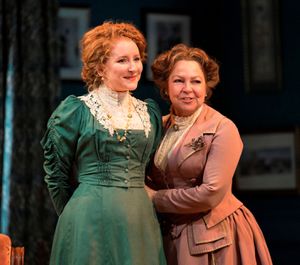
Timothy Watson gives a nicely judged portrayal of the celebrated barrister and admits that his courtroom style is in the pursuit of what is right. There’s tremendous support from Tessa Peake-Jones as Ronnie’s devoted mother Grace and Aden Gillett as his father Arthur.
Soo Drouet is the irrepressible maid Violet, and, making his professional debut as the wrongly accused cadet Ronnie, is Misha Butler.
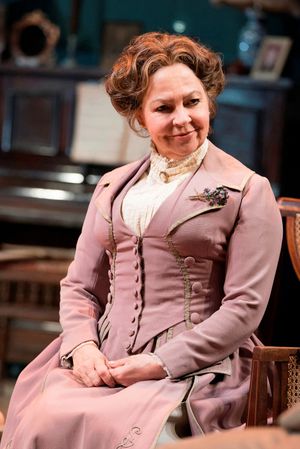
Director Rachel Kavanaugh, the REP’s former Artistic Director, returns to give us a production which has no quirky distractions and where characters are allowed to develop. The drama is carefully unwrapped and tells a compelling story most convincingly.
The play does have a sad irony. It s based on a true story about George Archer-Shee who left his naval college and went to another public school. He was commissioned in the South Staffordshire Regiment at the outbreak of World War One, but was killed in action in the first battle of Ypres in October 1914 aged just nineteen.
The Winslow Boy runs until March 3.
By Jerald Smith





